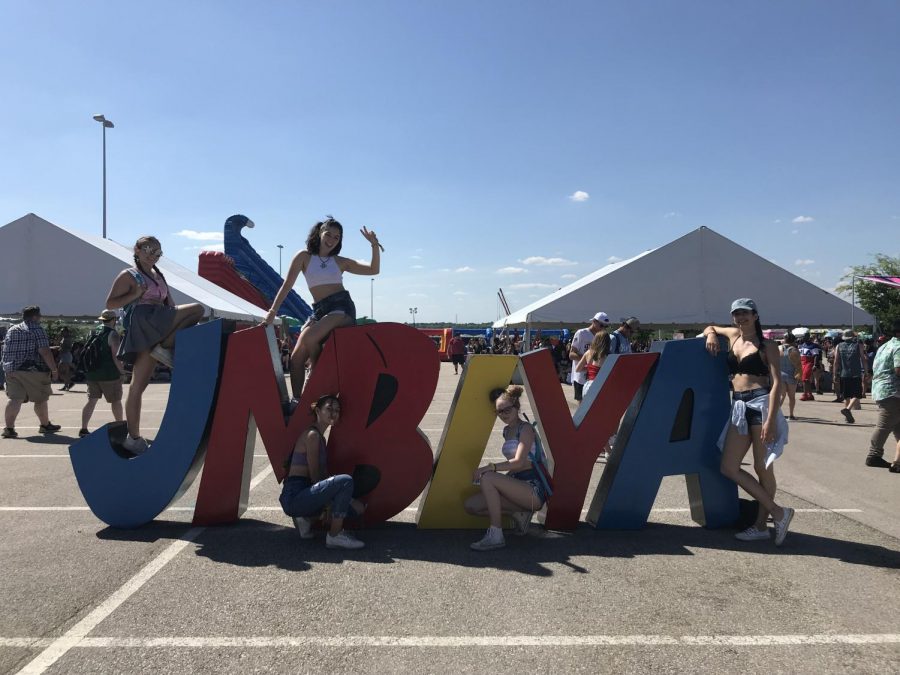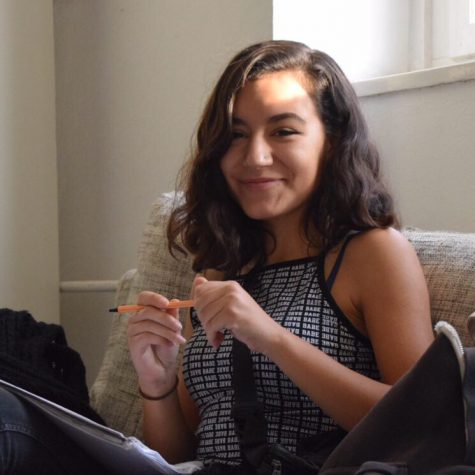JMBLYA Music Festival Showcases Trap Music
Festival goers enjoy the one day event.
May 14, 2018
As JMBLYA, the Texas-based music festival, made its way to Austin, crowds of glitter, Camelbaks, and sweaty concert-goers filled the Circuit of the Americas parking lot while the cars raced by in the distance and the speakers blasted the new music of our generation: trap.
The festival itself was glowing with energy and popping with bright colors as the people flooded into the center. The big concrete arena was filled with food trucks, tents, and diffused with people lounging around. At first glance, everything looked in order as the two stages were already set up, filled with screaming fans anticipating the long-waited acts. Popular, upbeat music compensated for the time that no one was on stage, which kept the crowd busy and hopeful. After a while, the first performers of the day, which consisted of the more local rappers and the non-headliners, began. But as they came onto the stage, hyping up the crowd of people, a strange thing happened. The recording of the song, including the words, would play into the speakers, while the performer would just dance around and not legitimately perform the music. To make matters more confusing, there was a designated time schedule to show exactly what time and at which of the two stages, either the Wolf or Shrimp, that the artists would perform. This was everyone’s form of time organizing throughout the day, but certain performances were randomly moved to the opposite stage, even after the time they were supposed to be on, which left some people in a panic that they wouldn’t be able to get a good spot again.
Despite the synthetic performances and the organization issues, the energy never left the crowds, as it was apparent that everyone just wanted to hear the music and enjoy their time. Huge mosh-pits and dancing circles quickly began to erupt inside the audience, open water bottles were thrown from above every which way, splashing everyone dancing with water. The energy of the crowd was undoubtedly a very significant part of the day because it made it feel like all of the small problems didn’t matter as much as having fun.
As for myself, the problematic performances did not hinder the fun of the day. Although trap music, which can be described as a mixture of a more modern rap and hip-hop, is not necessarily my music of choice, acts such as Playboi Carti and Trippie Redd were undoubtedly exciting and fun to watch. In my opinion, the most genuine performance was that of rapper J Cole, who departed from the rest of the days fabricated nature, and delivered his real voice into the crowd.
Trap music, like most other things, comes with a certain amount of backlash and animosity, deriving typically from audiophiles and people who oppose the negative lifestyle connotations that come with the genre, whether that being typical social-media posts showing off their cars and money or the vulgar nature of some of the songs. This festival, sadly, may have only reflected the bias that was already there because of the ill-preparedness that came with the day. But if one thing is for certain after JMBLYA, it’s that trap music, no matter the quality, is a music genre that is not going anywhere.



